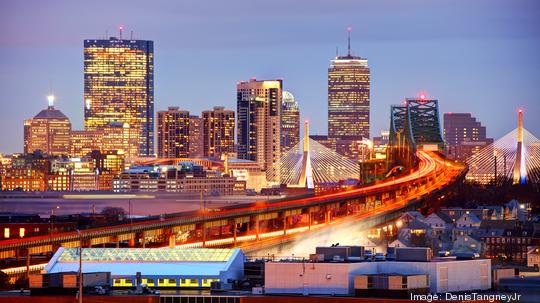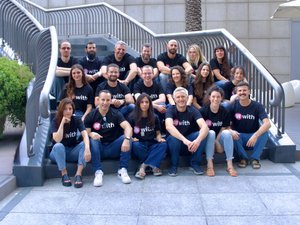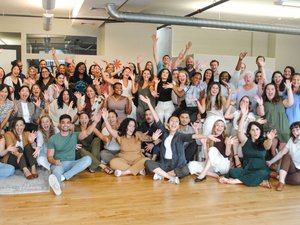
White men still dominate the tech industry in Massachusetts, despite progress made by local companies over the last few years.
That's one major takeaway from two new reports released Friday by the Massachusetts Technology Leadership Technology (MassTLC). The State of the Massachusetts Tech Economy examines the tech ecosystem here in Massachusetts over time and as compared to other states, and the Massachusetts Tech Pulse Index compiles the results of a survey of 156 tech executives in the Bay State.
Within Massachusetts' tech industry, just one-third of all workers are women. The numbers are even worse for Black and Latinx employees: In Massachusetts, only 5 percent of tech workers are Black, and 7 percent are Latinx. Amazingly, those groups have actually shown incredible gains over the last three years. In 2015, just 3 percent of tech workers were Black, and 3 percent were Latinx.
And when MassTLC's analysts considered both race and gender within tech occupations, Massachusetts had the highest white male participation rate among its peer states.

That's significant when you consider how prevalent the tech industry is in the Bay State's economy. According to the State of the Massachusetts Tech Economy, tech underpins 35 percent of all jobs in the state. There are more jobs in tech than in any other industry cluster in Massachusetts.; the tech industry employs nearly twice as many people as the second-largest cluster, finance and insurance.
As the report notes, the tech sector is continuing to add jobs, and the growth of that sector is likely driving job growth in other industries, including construction, professional services, health care and leisure and hospitality.


The Massachusetts Tech Pulse Index examined the diversity of tech companies' boards as well. The survey found that women were most likely to hold one seat on a board of five members or less. Racial and ethnic minorities, if they were included on a board, were most likely to have one seat on a six- to 10-member board, whereas openly LBGTQ+ board members—of which there were very few among survey respondents—were typically represented by a single seat on a board of 10 members or less.
“This research is critical to measuring the huge impact the tech sector and tech has on the entire Massachusetts economy," MassTLC CEO Tom Hopcroft said in a statement. "And while we count ourselves lucky to have such a robust tech ecosystem, we also must be mindful as we look to find solutions to overcome our biggest challenges and ensure they do not threaten our future growth.”
Among those challenges are the ever-increasing cost of living and what MassTLC called "an antiquated, unreliable transportation system."
For context: Zumper's January 2020 National Rent Report, released last week, found that Boston is the third-most expensive rental market in the country, with one-bedroom rent at $2,590 and two-bedroom rent at $3,390. The state median rent for one-bedroom apartments, meanwhile, was $1,879 in December.
On the transportation front, the MBTA overall has suffered breakdowns and safety issues over the years. From 2014 to 2019, it derailed 43 times, the second-highest total of any metro transit system in the country. And roads aren't much better: Transportation analytics firm INRIX found in its annual report card last year that Greater Boston has the worst rush-hour traffic in the country, with drivers losing 164 hours and up to $2,291 each year due to congestion.
“The vibrant city atmosphere and the world class universities form a solid foundation for technology in Massachusetts, but there will come a stage where increasing commutes and living costs will stifle growth," Fidelma Russo, CTO and EVP at enterprise information management services company Iron Mountain, said in the Massachusetts Tech Pulse Index report. "[W]e need to invest during this expansion cycle to ensure the infrastructure scales with the population demand.”
It's not all bad. The majority of respondents in the Tech Pulse report said they believed 2020 would be a good time to grow their business and that they expected to increase their Massachusetts-based workforce in the next six months.
Plus, they're likely to recruit local talent: 69 percent said it was "very important" that new hires were based in Massachusetts.
But if employers want to ensure that can happen, they'll need to stay on top of their own policies—and work with lawmakers—to make Massachusetts livable and welcoming.
“Not surprisingly, talent, transportation and housing continue to be top inhibitors of our state’s economic growth,” MassTLC trustee and IDG CEO Mohamad Ali said in the Massachusetts Tech Pulse Index report. “It’s critical that our state leaders recognize this and act with greater urgency to expand our capacity in these three areas, and that they do so in an equitable manner.”








